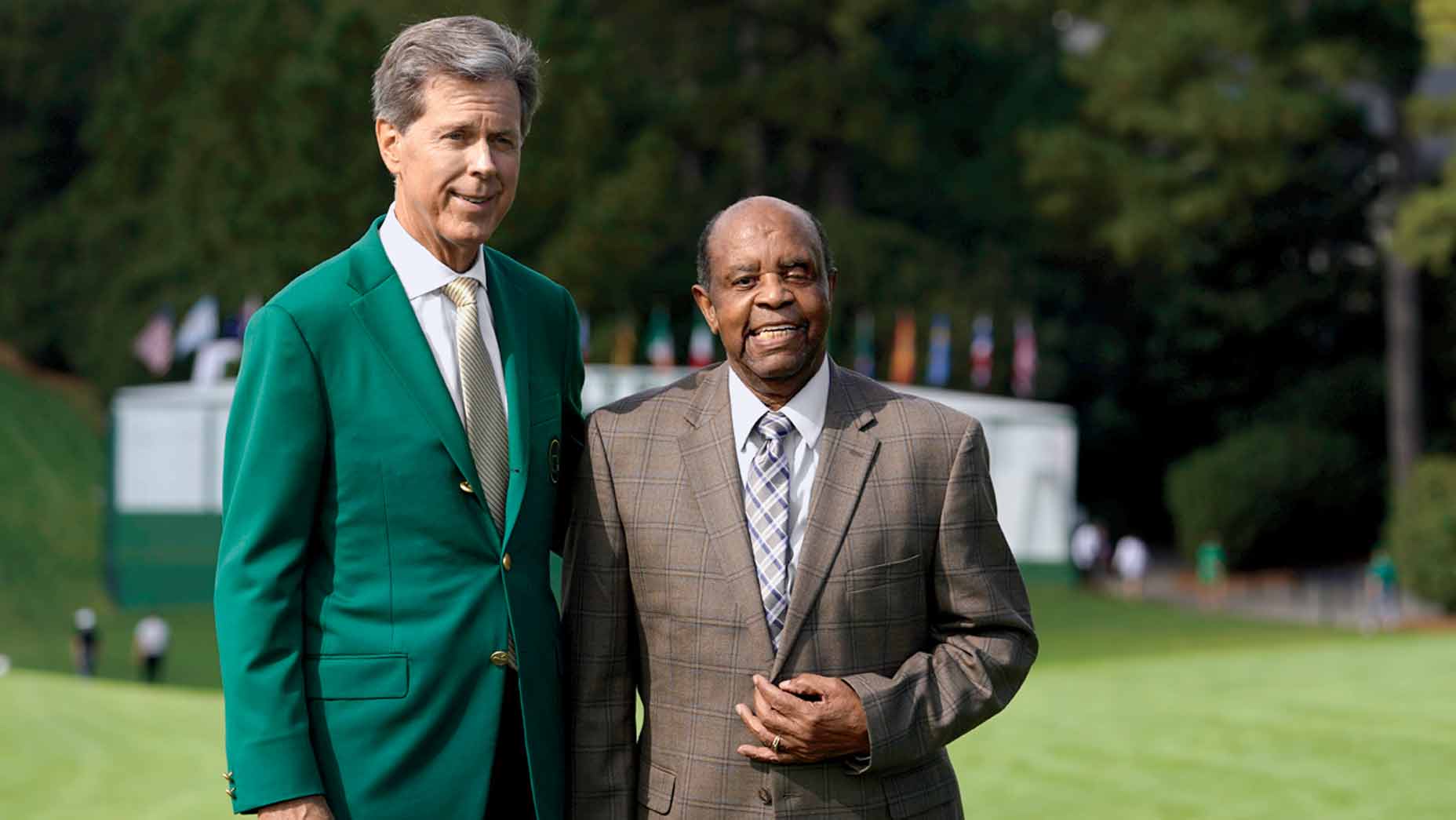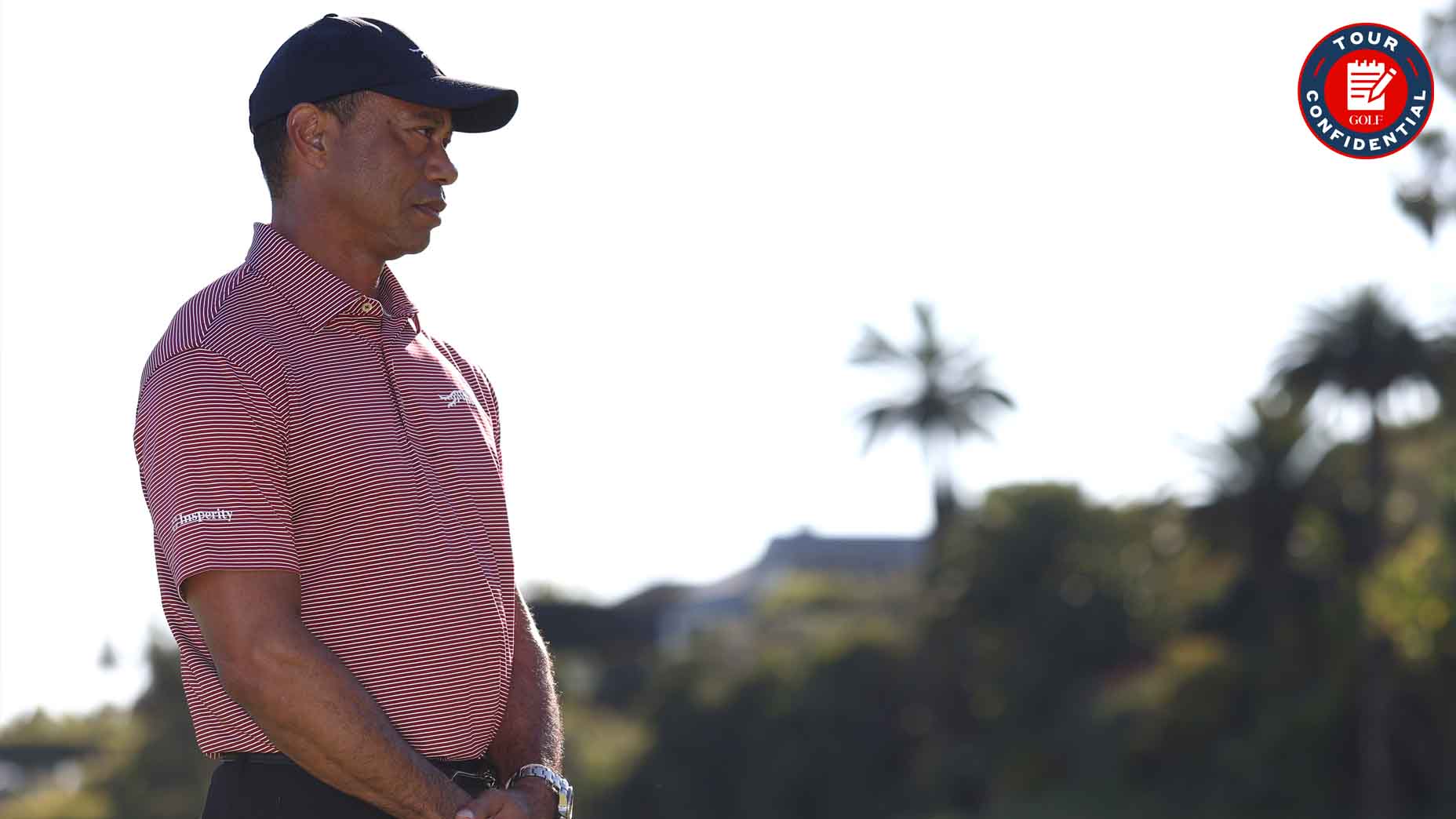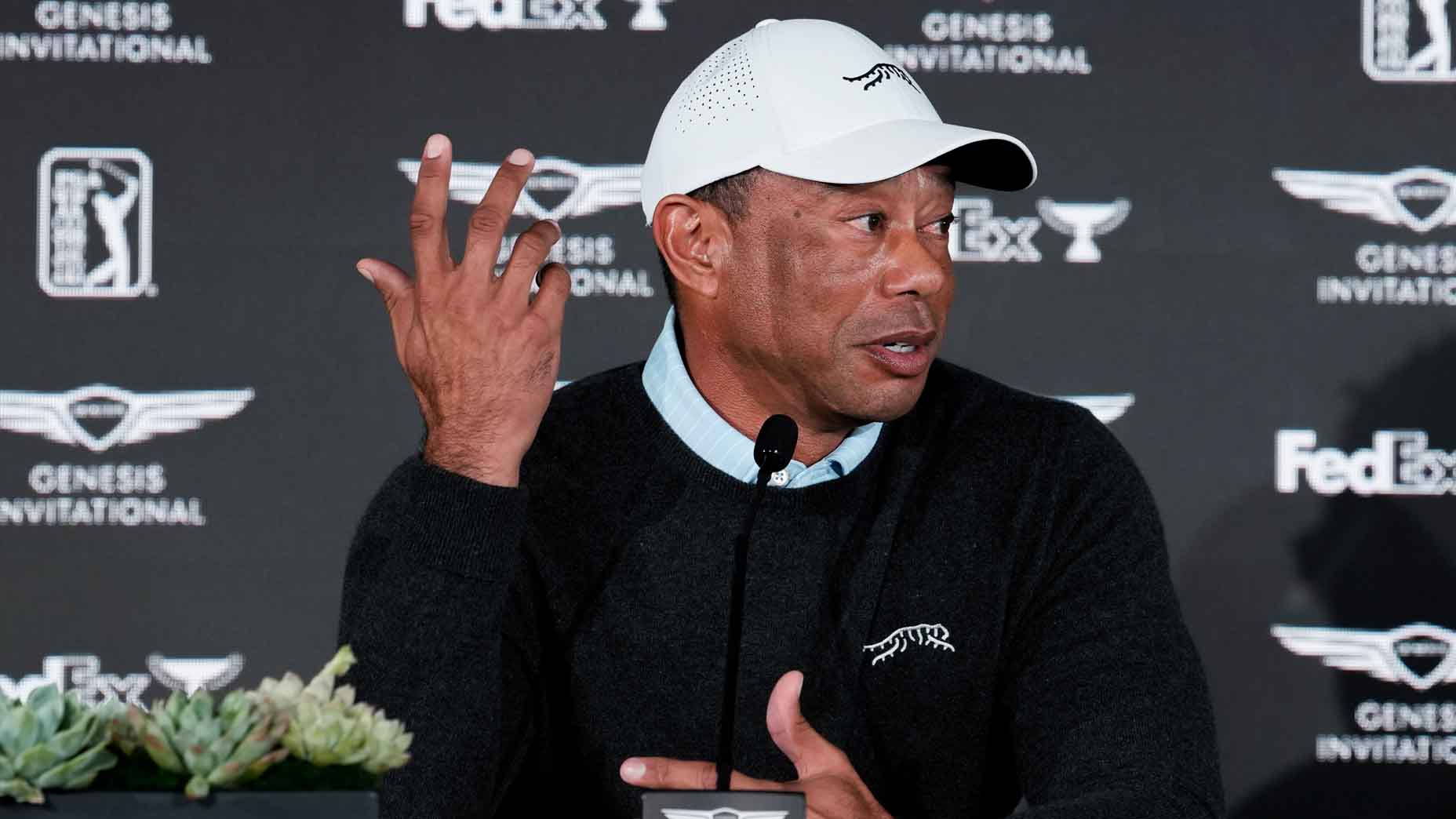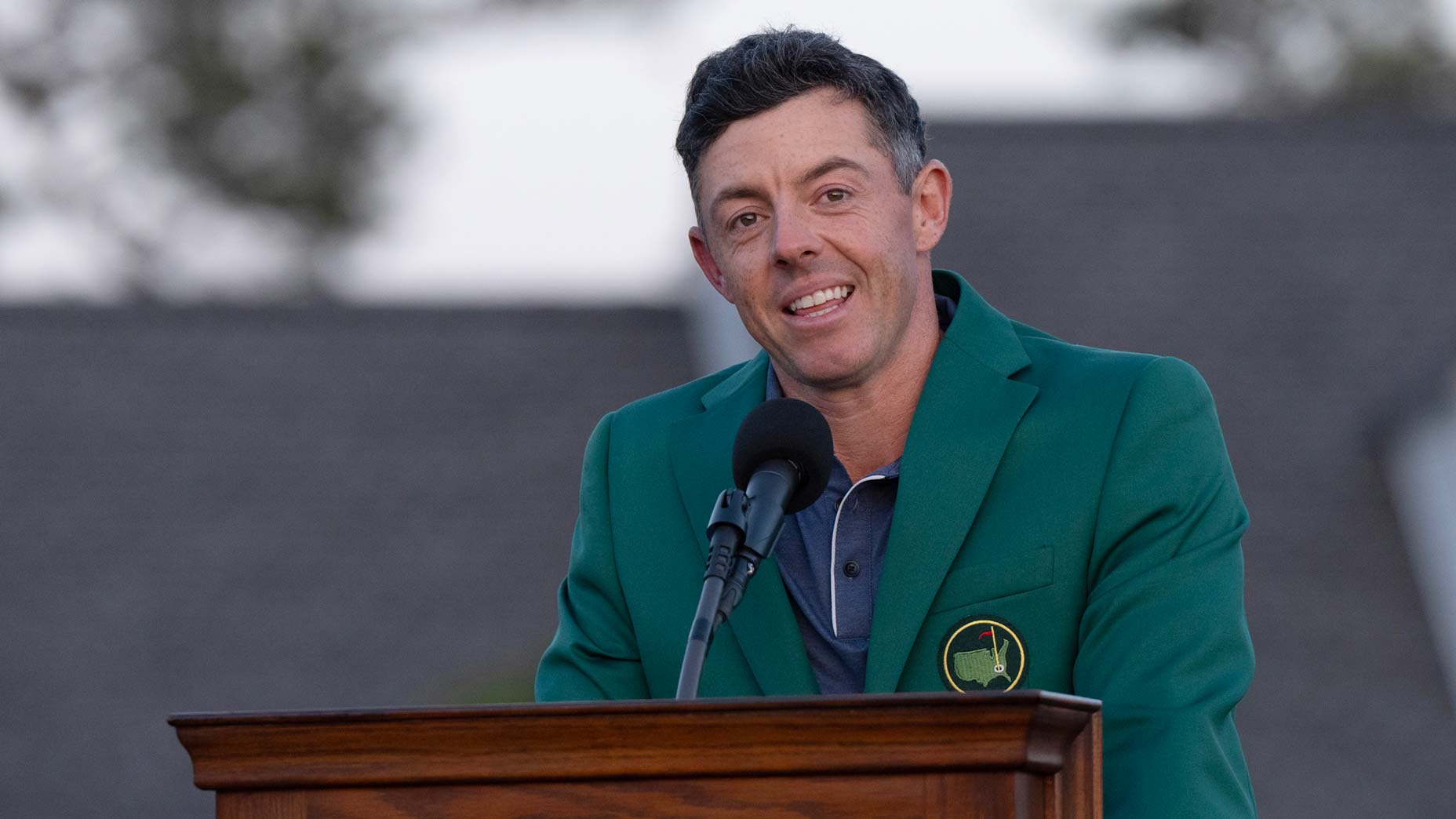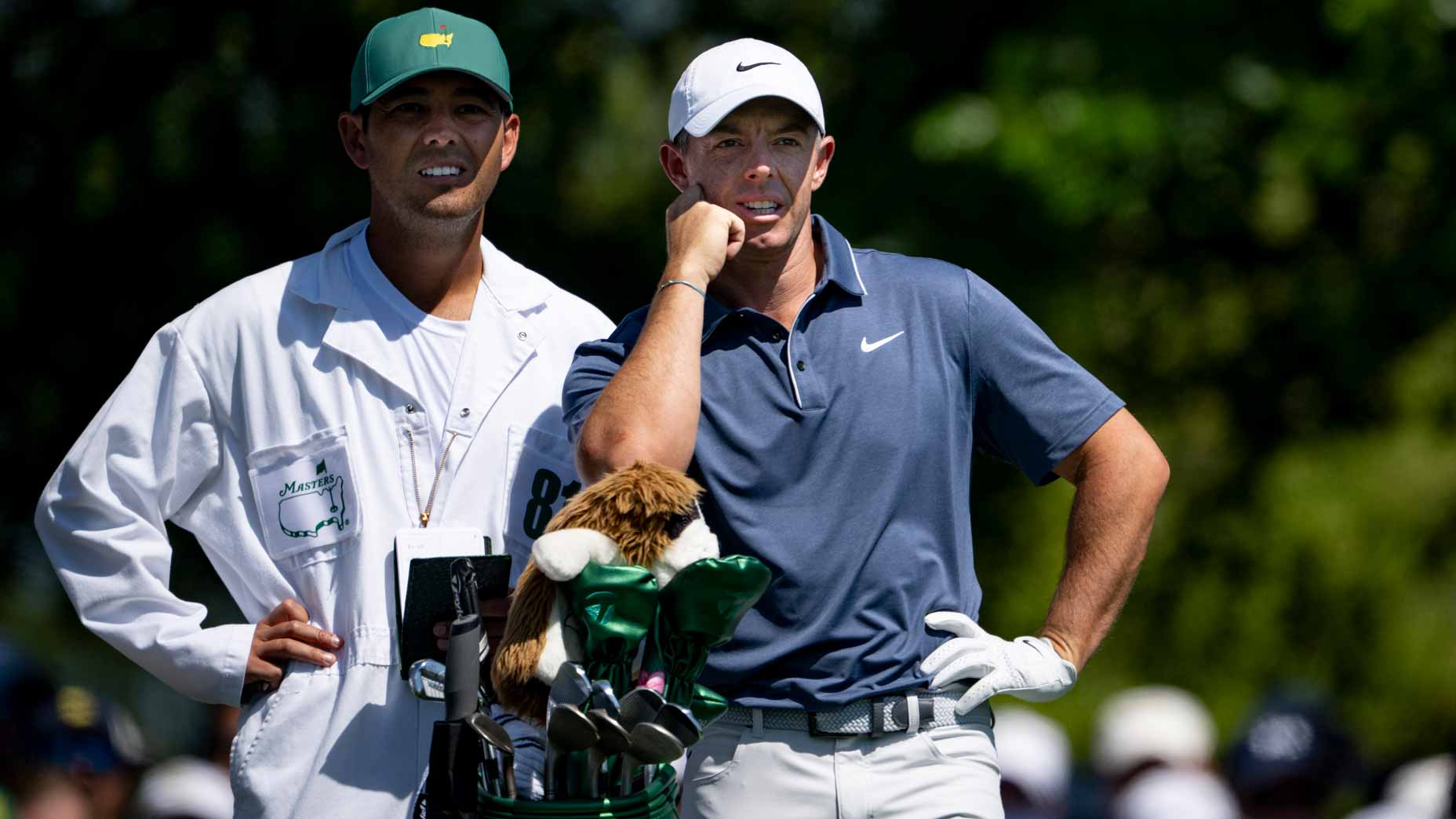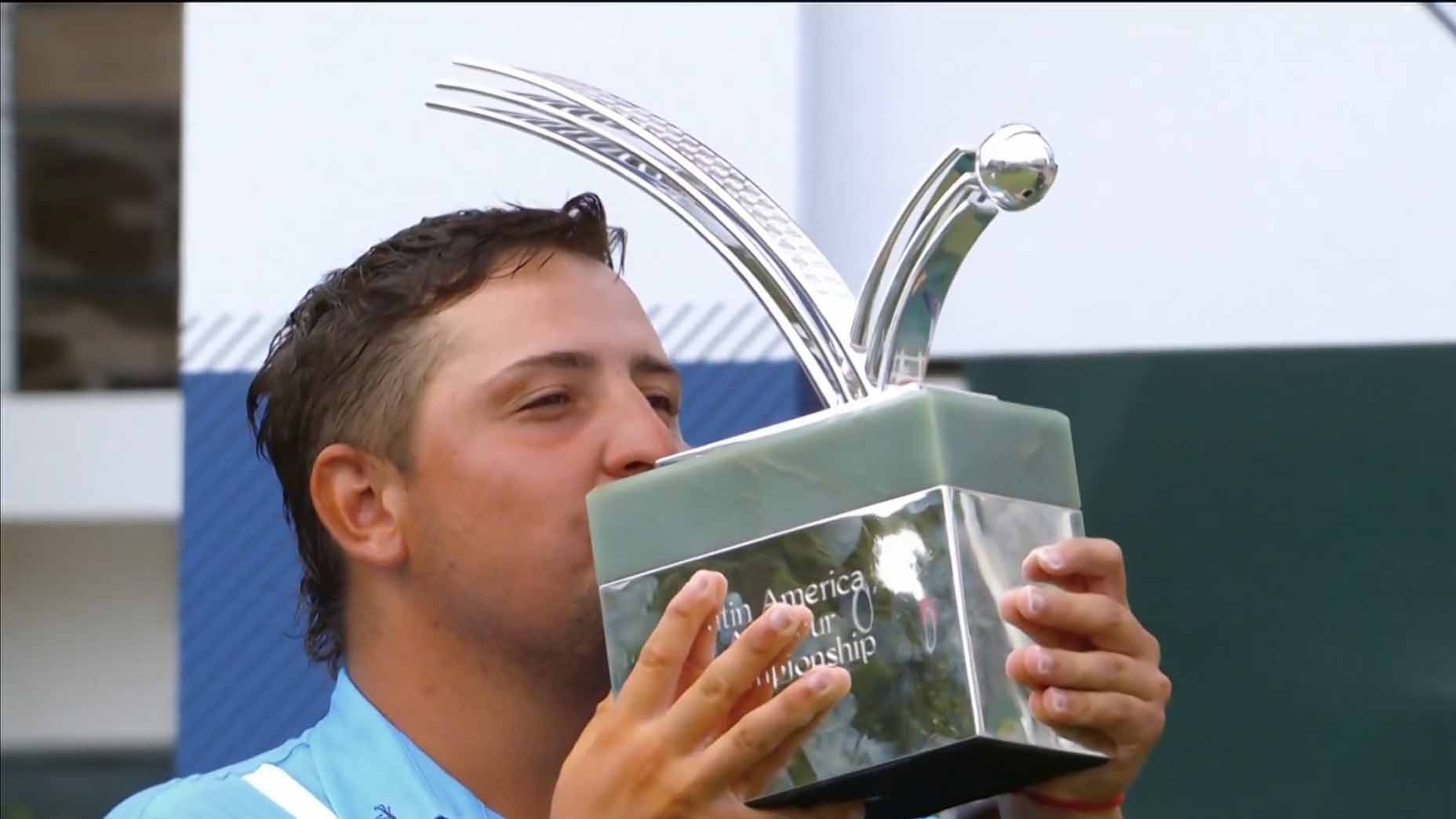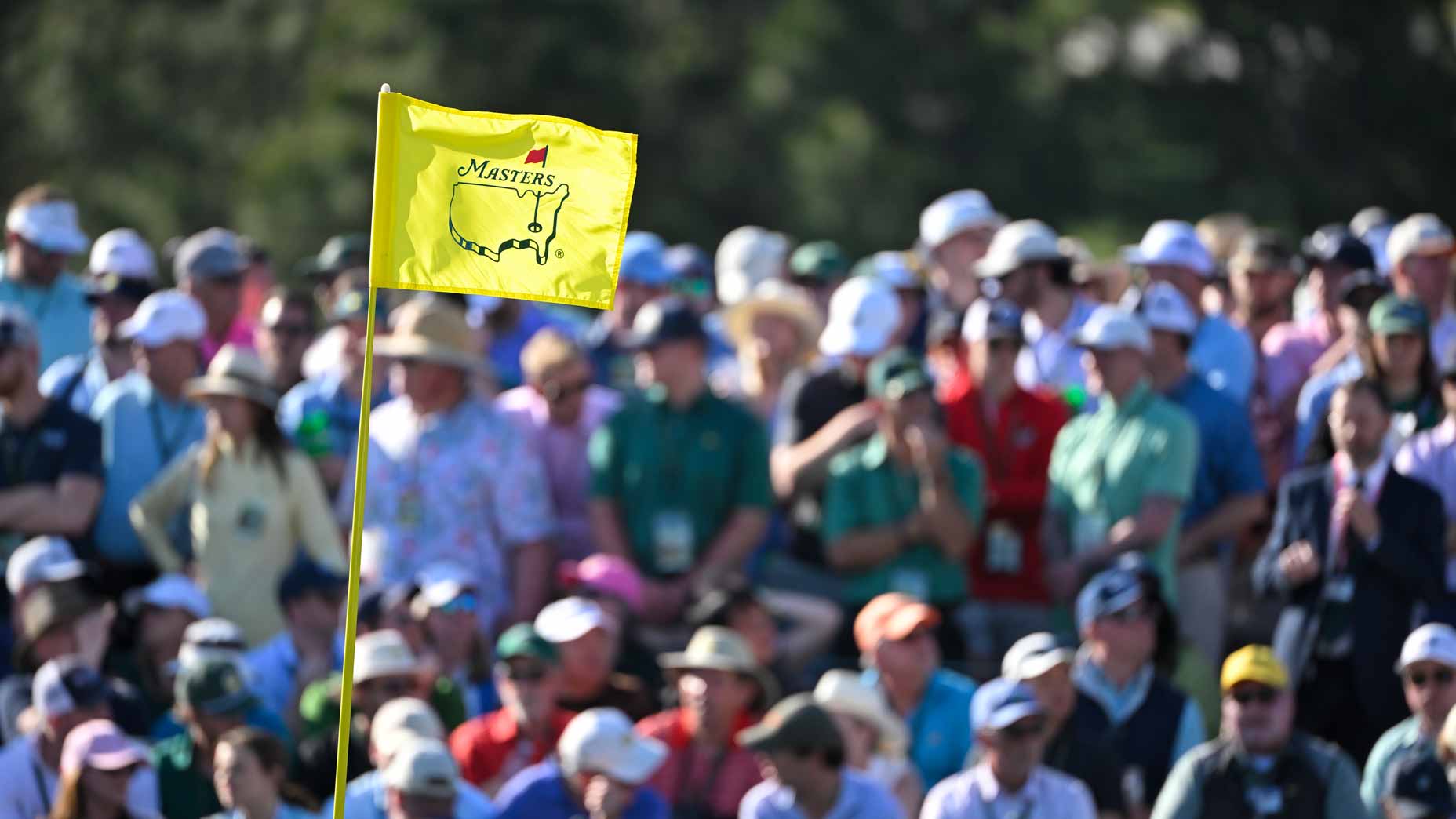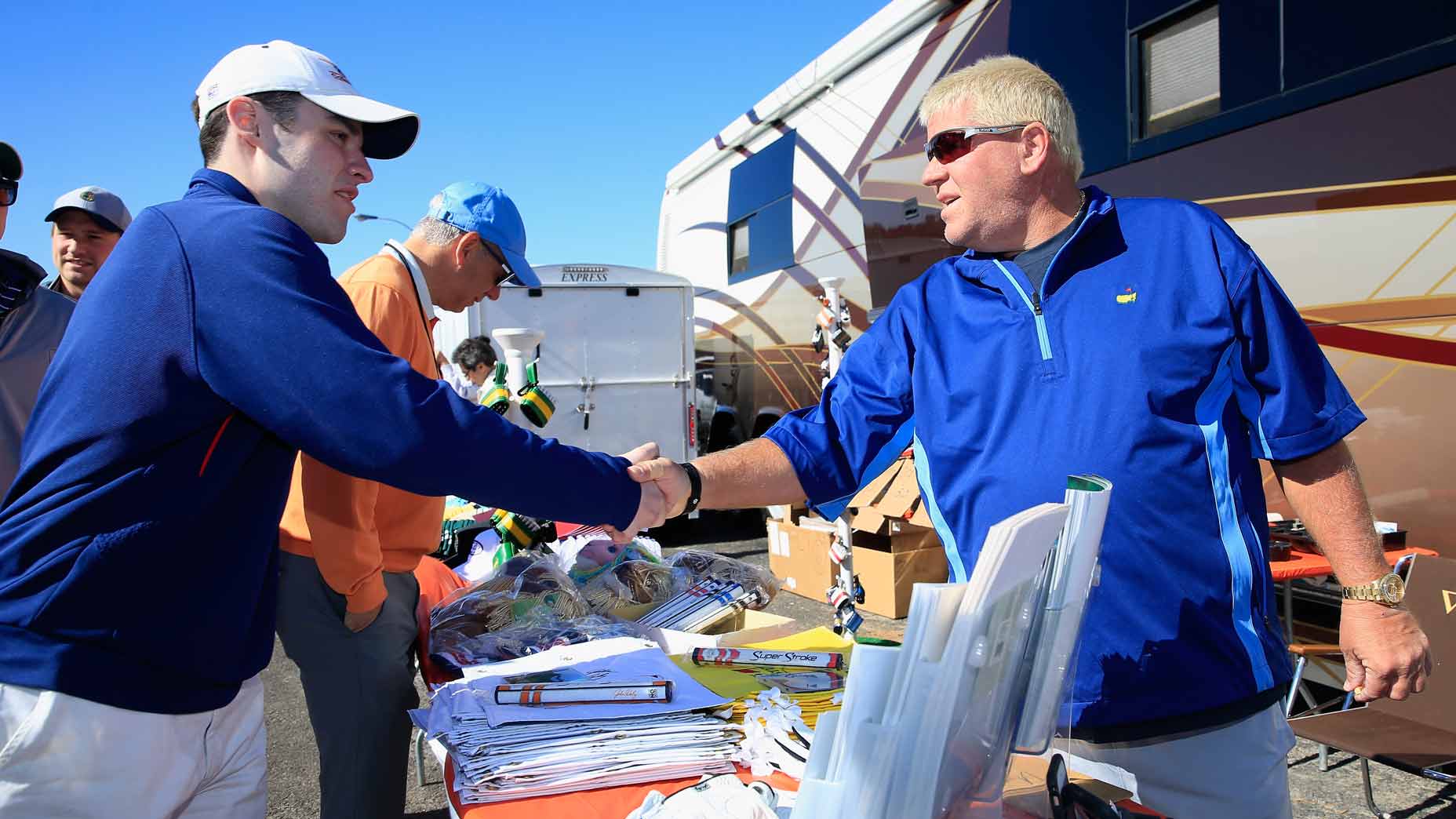Early on the Thursday morning of Masters week, on the first tee at Augusta National, there will be a small reunion of a dwindling fraternity: the first and only generation of Black men who brought style and talent — and heart and soul — to the PGA Tour.
This is a fraternity without pretense, where caddies and players sup as equals, in part because the players, a good number of them, started as caddies, and the caddies, many of them, could play. The patron saint of this fraternity is the late and great Charlie Sifford, grumpy and wise, for whom Charlie Woods is named.
One of the youngest members of the fraternity is Jim Thorpe. He played in the Masters six times, back in his day, but now he’s 72 and he’ll be outside the ropes on the morning of April 8, 2021. Beside him will be another member, Richard “Jelly” Hansberry, 82, who has worked 38 Masters tournaments, either as a caddie or a CBS spotter. Their eyes will be trained on Lee Elder, 86, one of the oldest surviving members of this remarkable golfing society.
Why adding Lee Elder to a Masters tradition is so meaningfulBy: Michael Bamberger
Lee Elder will be on the first tee itself, inside the ropes, just as he was 46 years ago, when he became the first Black man to play in the Masters. Mr. Elder will be an honorary starter for this 83rd Masters, alongside Jack Nicklaus and Gary Player.
On the Thursday of the 1975 Masters, 28 Aprils after Jackie Robinson broke baseball’s color line, Lee Elder broke Augusta National’s. His game — low draw shots right on the face, average length, ordinary putter—got him over one of golf ’s most impenetrable walls, built by racism, its razor ribbon hidden by all those beautiful magnolias. Millions watched as a Tour winner and a sharp dresser from Washington, D.C., desegregated a tournament that celebrates Southern gentility. You better believe Earl Woods was paying attention. Nearly nine months later, Tiger was born.
Jelly Hansberry, Jim Thorpe’s caddie and Lee Elder’s friend, was there in ’75, as Lee’s guest. We were talking about the Black golf tour, run by the United Golfers Association, as he remembered it from the ’60s. “Our three big events were in Winston-Salem, Greensboro and Asheville,” Jelly said. In other words, in North Carolina. He described rough greens, fierce play — and how Lee Elder dominated that tour, not that the spoils were any great thing. “And now,” he said, skipping ahead a decade or so, “we’re driving down Magnolia Lane.”
“There was Lee Elder. You knew he grew up playing on cow pastures, with clubs he found, and now he’s going toe-to-toe with Jack Nicklaus.”
Everybody at Augusta — the members, the players, the club’s waiters, all of them Black — went out of their way to be welcoming.
“They were serving us lunch on paper plates and we thought that was funny,” Jelly said. They looked around. Everybody else was eating off paper plates too. Gary Player was the defending champion at Augusta in ’75.
Jack Nicklaus won that year, two days after Lee Elder missed the cut. Elder won the 1971 Nigerian Open and on that same trip to Africa, amid the stranglehold of apartheid, Elder played in the South Africa Open and the South Africa PGA Championship. Gary Player helped pave his way. But to skirt the law, Elder was, by South Africa governmental decree, made an “honorary white.”
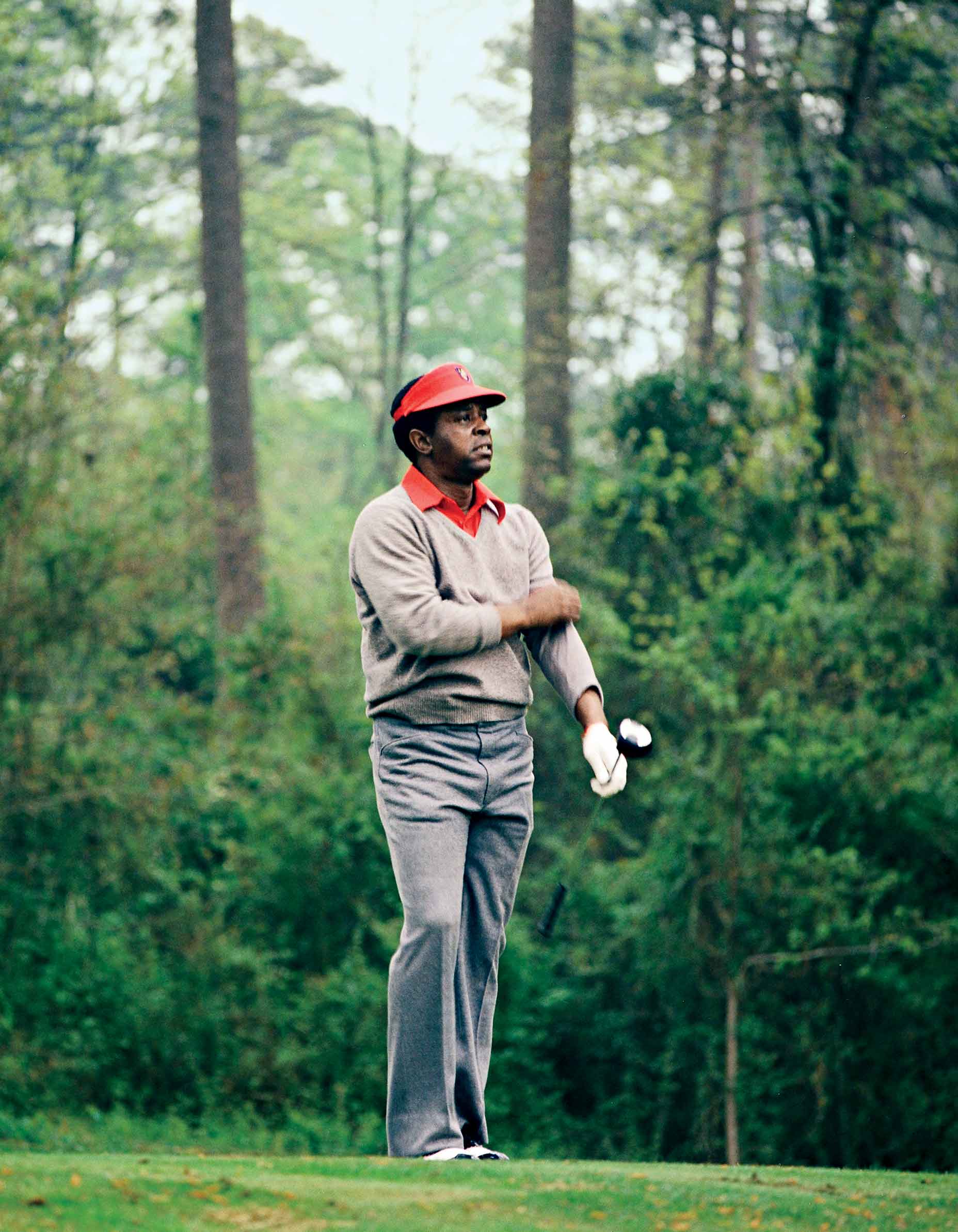
Jim Thorpe remembers when Lee Elder made that trip. He remembers Lee at the ’75 Masters. He remembers his brother Chuck telling him, in the early 1960s, that Lee Elder was the toughest closer on the UGA circuit. (Thorpe is part of a group trying to rekindle the UGA.) But to him, August 11, 1968, is the most significant date in the Lee Elder timeline. On that Sunday, after four rounds in the American Golf Classic in Akron, Ohio, Elder, a 34-year-old PGA Tour rookie, was in a tie for the lead, with 280. Wouldn’t you know it, Jack Nicklaus had shot 280 too. They tied the first hole of the sudden-death playoff, then the second, the third, the fourth. Fans were climbing trees to watch. Nicklaus won on the fifth. In Jim Thorpe’s mind, Lee Elder won. A Black golfer had gone the distance with Big Jack.
“I was living that summer with an uncle in Baltimore. He had a TV,” Jim told me. “And there’s Lee Elder. You knew he grew up playing on cow pastures, with clubs he found, and now he’s going toe-to-toe with Jack Nicklaus.”
Lee Elder cleared Jim Thorpe’s path to Augusta National, and now the club is bringing Lee Elder back. Jim Thorpe and Jelly Hansberry will follow him there. So will we.
Michael Bamberger may be reached at Michael.Bamberger@Golf.com.
